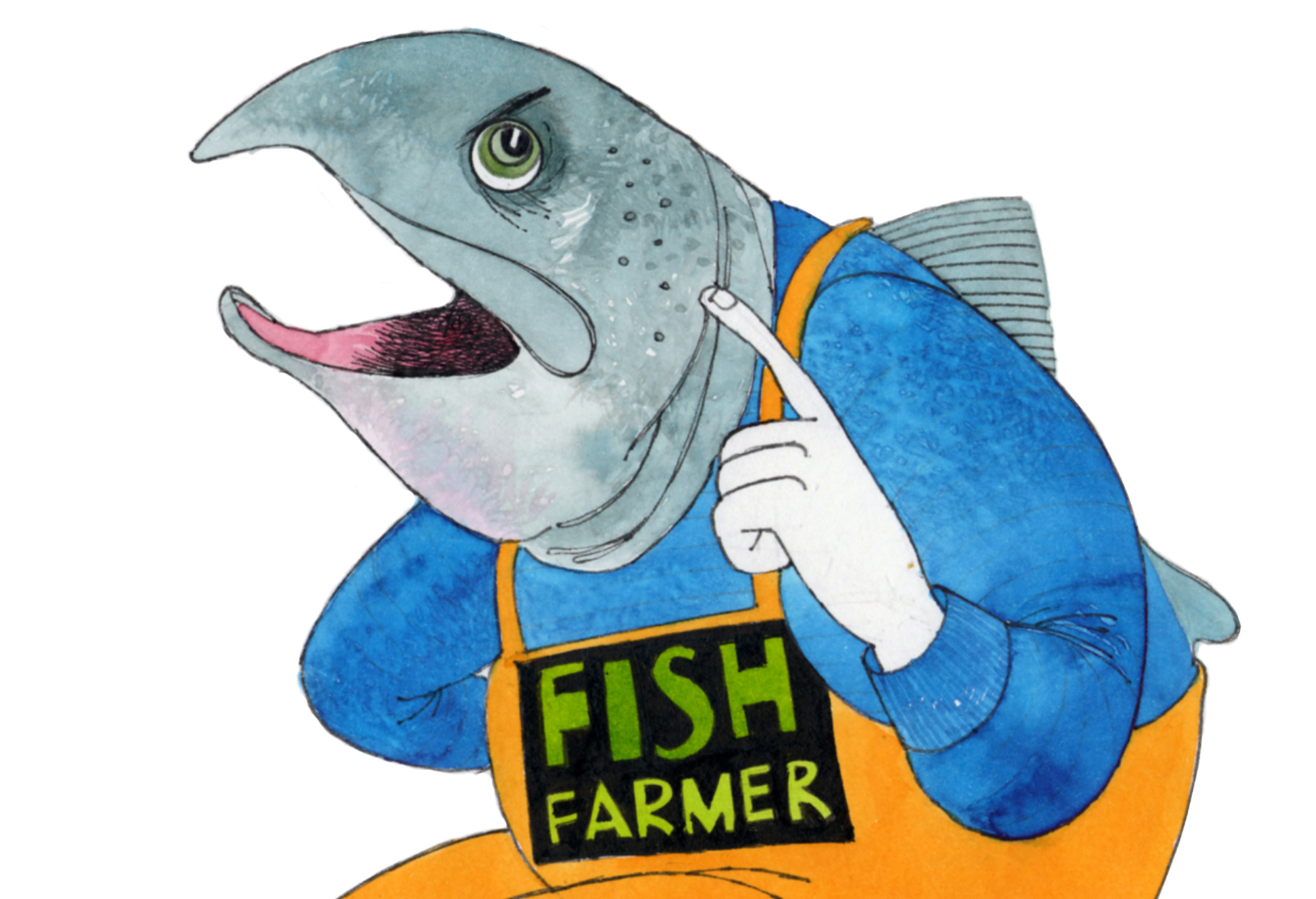Recirculating ideas in land based farming

VERY early in my career, in the face of the usual barrage of criticism from the wild salmonid sector, someone started to talk about growing salmon on land.
I was lucky then, as now, to have good friends in the industry to discuss ideas and debate the best ways forward.
Although some of them thought it was inevitable that the industry was pushed that way, others, me included, felt that acceding to pressure to do something illogical would be counter-productive in the long run. I don’t think things have changed.
Let us assume that there was no anti-salmon farming lobby; would anyone even consider growing salmon on land?
Unless you have come up with some answer that I have not spotted, the only reason for onshore salmon farming is as a response to criticism, hardly the best reason for a business.
Imagine suggesting to a potential funder of such a project what is involved in this type of farming.
Firstly, we are going to build an extremely complicated, highly technical and extremely expensive infrastructure.
This will need to be designed to be highly reliable, highly flexible and maintain an extremely stable environment.
Then we are going to stock it to a very high level, necessary in order to make a profit.
These stocking levels mean that any error by system or operator make it likely that there will be fish losses.
So to ensure the highest standards of operation, we will need the best of technology but also the highest standard of staff, both expensive.
In order to maintain good chemical quality water for the fish, we will need to maintain complex biological systems in seawater, or the build of waste materials will affect fish performance or even kill them.
Feeding and feed monitoring must also be of the highest order or this will overload the system too.
Infrastructure operating costs will be very high as well because large amounts of water have to be pumped about. Energy requirement for this type of farming cannot be anything but high.
Our imaginary funder may well ask what the market for this product will be. Well, I don’t know if you noticed in the April issue of Fish Farmer [‘Land reared salmon tastes like…salmon’] but a pack of salmon from such a farm was shown at £25.90/kg, hardly a snip.
Even when competing with salmon prices at their highest this is hardly a small differentiation. The price is close to double the nearest competing product.
Just to emphasise this, the pack shown offered fillet of 0.36kg for £9.20. It reminds me very much of No Catch Cod when it was on the market.
I am sure that in my imaginary conversation, I would be arguing that scaling up will bring the costs down.
But that would depend on a market large enough to take a considerable increase, as well as the ability to manage an increase in complexity.
The funder would surely ask whether a large market exists for such an extreme differentiation.
But somewhere there is a charismatic entrepreneur and a willing funder because projects are getting funded and are developing.
The question for me is not whether they will succeed but whether they are a way forward for our industry in the long term.
It is not a question of risk because although onshore farming decreases the risk of sea lice and so on, it increases the risks in other ways.
So it could be argued that the risks at sea balance out the risks on land (but I wouldn’t try to make that argument).
The reasons for its future demise will be multi-factorial. Firstly, an industry’s existence must be predicated on more than the fact that its competitors are being criticised.
The question is not whether they will succeed but whether they are a way forward for our industry
What if the criticism eventually proves to be unfounded? The simple truth is that time will show whether the criticism is true. If not, there is no basis for such a differentiation.
The next is that its costs will always be higher than its competitors’ and so will its energy use.
In the future, it is highly likely that protein production will be measured on its energy consumption.
In a world where energy use will come under increasingly intense focus, this form of farming will be exposed by the very people who pressured its formation.
I will not go into the welfare issues of higher stocking densities or the history of major losses in this industry, but the popularity of feedlot beef or intensive egg or milk production should warn against this form of farming from a market perspective.
As long as programmes such as Panorama produce biased perspectives, there will be people who think this is the future.
I wish no ill of those who chase this dubious dream, but I think you cannot predicate a viable future on the utterings of a small group of vociferous people.

